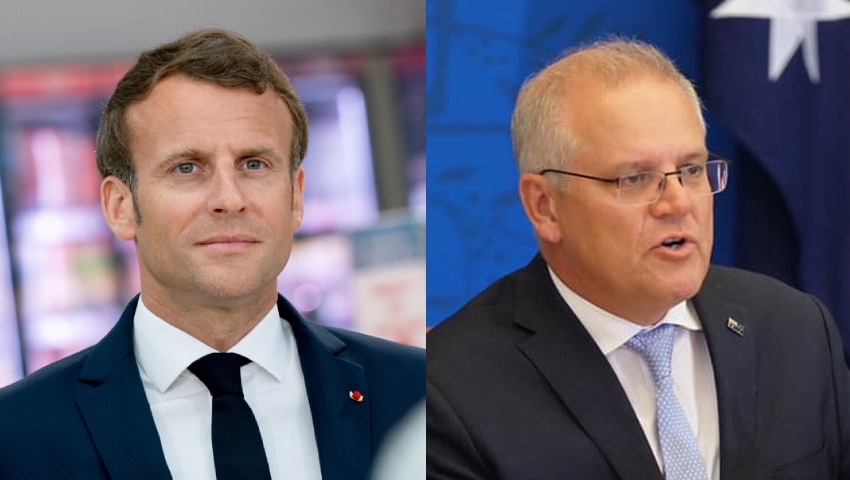Australia must repair its fractured relationship with France to avoid leaving itself vulnerable to great-power tactics in the diplomatic arena, according to a former UN assistant secretary-general.
To continue reading the rest of this article, please log in.
Create free account to get unlimited news articles and more!
Diplomatic tensions between Australia and France have continued to simmer following the Commonwealth government’s decision to axe French contractor Naval Group’s Future Submarines contract in favour of a new trilateral security arrangement with the United Kingdom and the United States (AUKUS).
French President Emmanuel Macron recently slammed the deal on the international stage, claiming it undermines the trust of Australia’s allies.
"I think this is detrimental to the reputation of your country and your Prime Minister,” he told reporters at the G20 Summit in Rome.
President Macron was asked if he thought Prime Minister Scott Morrison lied about his commitment to the French deal, to which he responded: “I don’t think, I know.”
The French president said it was up to Prime Minister Morrison to regain France’s trust.
“You can have disagreements, I do respect sovereign choices but you have to respect allies and partners, and it was not the case with this deal,” President Macron added.
“… It is now his decision to see how he will move.”
According to Ramesh Thakur, a former UN assistant secretary-general and emeritus professor at the Australian National University, the dispute risks leaving Australia “exposed and vulnerable” in a “major-power league above its paygrade”.
He accepts the rationale behind Australia’s decision to cancel Naval Group’s contract, which he claims “should never have been signed in the first place”.
But Professor Thakur laments the “diplomatic folly” associated with the shift in the “burden of the cost and embarrassment” from Australia to France, which risks “wrecking a centrepiece of French engagement with the Indo-Pacific region” amid the growing threat from China.
“This cannot but weaken the collective unity and cohesion of the democratic alliance against the multi-faceted challenge posed by China,” he writes.
“That’s the test of diplomacy the AUKUS allies have failed and they must play catch-up to repair the damage.”
Thakur notes the importance of a strong, robust relationship with the European Union, given its contribution to global finance, trade, infrastructure, health, artificial intelligence and green technologies.
The former assistant secretary-general of the UN warns Australia could become the “sacrificial lamb” if the US and UK “mollify Macron” to shore up ties of “critically greater importance”.
“France matters more to the US than Australia does, by a lot,” he continues.
“Hence Biden's grovelling remarks to Macron at the G20 summit in Rome: ‘We have no older or no more loyal, no more decent ally than France,’ Biden assured Macron while apologising for a graceless and clumsy handling of the issue and saying he thought Paris had been kept informed by Canberra.”
As such, Professor Thakur claims Australia has little choice but to “swallow hard and accept Washington’s logic”.
“Major powers like the US, China and France pursue imperial foreign policies, not ethical ones,” he adds.
“Australia is being targeted by Xi Jinping, mocked by Macron and been thrown under the bus by Biden.”
Referencing Lord Palmerston, Thakur writes that “nations have no permanent enemies and allies, only permanent interests”, justifying US attempts to appease France.
“… Australia needs the maturity to understand that this is how the world operates and to work around the realpolitik instead of sulking over it,” he concludes.
Get involved with the discussion and let us know your thoughts on Australia’s future role and position in the Indo-Pacific region and what you would like to see from Australia's political leaders in terms of partisan and bipartisan agenda setting in the comments section below, or get in touch with

 Login
Login







